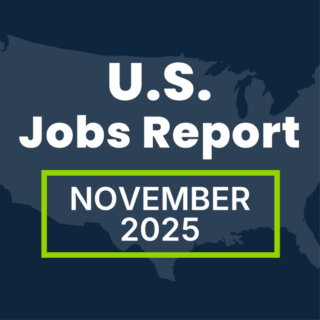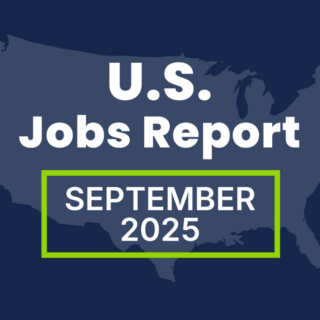A well-designed early careers program is not just a nice-to-have—it’s a strategic imperative. As organizations vie for top Gen Z talent, those with robust, thoughtfully structured programs gain a significant edge. This article delves into the crucial elements of building a successful early careers initiative, and how engaging an RPO can help you structure your overall program and craft an effective early careers recruitment strategy.
The following guide will explore how to create a program that not only attracts bright, ambitious graduates but also nurtures their growth, aligns with your business objectives, and builds a pipeline of future leaders. From rotational schemes and mentorship opportunities to innovative early careers recruitment tactics, we’ll cover the essential components of how an RPO partner can set your early careers program apart.
The Impact of RPO for a Strong Early Careers Program
Establishing a robust early careers program can be a complex undertaking, but partnering with an experienced recruitment process outsourcing (RPO) provider can significantly streamline the process. An RPO partner brings specialized expertise in designing and implementing comprehensive early careers initiatives, from structuring rotational schemes and mentorship programs to crafting tailored development pathways. They can help align your program with current industry best practices, ensuring it appeals to Gen Z talent while meeting your organization’s strategic objectives.
Moreover, an RPO partner can revolutionize your early careers recruitment strategy, leveraging cutting-edge technologies and innovative approaches to attract top young talent. They can manage the entire recruitment lifecycle, from employer branding and candidate sourcing to assessment and onboarding, allowing you to focus on core business activities. By entrusting your early careers program to an RPO specialist, you’re not just filling entry-level positions—you’re investing in a scalable, future-proof talent acquisition strategy that will drive long-term organizational success and build a strong pipeline of future leaders.
Considerations for Your Early Careers Program
Before you can start thinking about how to recruit this dynamic generation, you need to think about how to structure your early careers program. Your RPO provider will guide you through some of the questions below as they help you create a blueprint for building your early careers program.
Early Careers Program Structure
- What are the goals and objectives for your early careers program? Do you want to develop future leaders, or are you trying to find talent with particular skills?
- Have you created an early careers success profile? Who is the ideal early careers hire that will meet your program objectives and fit your company culture? What skills and capabilities do they need? What behaviors should they exhibit?
- What are your diversity targets for the early careers program?
- What will the program look like? Will early careers hires join a particular team or department? Or will they go through rotations with various departments before specializing? How long will each rotation last? What will they do during each rotation?
- How long is your early careers program? It could be one to three years, or even longer, depending on your objectives.
- Will you hire continuously for your early careers program or bring in annual or semi-annual cohorts? How big is each cohort? You’ll need to balance your program objectives with providing individualized attention and fostering connections.
- Do you have a dedicated early careers program coordinator? What about an executive sponsor or steering committee?
Work Environment & Support Systems
- Where will your early careers talent work? Are they required to work from the office? Or are you open to hybrid working options to offer flexibility?
- How will you ensure retention of early careers talent? Mentoring programs that pair early careers talent with experienced professionals and buddy systems for peer-to-peer support are two ways to foster engagement, inclusion and community.
Development Opportunities & Career Progression
- What training will your early careers talent need to be successful in the short and long term? Are these materials already created or do you need to develop them? Does the training take place in person, virtually or a hybrid? Do you need to invest in learning and development (L&D) technology?
- How will you measure the performance of your early careers talent? Gen Z loves feedback and will want to have career development discussions early and often. Your RPO partner can help ensure your managers and leaders are prepared with performance criteria and coaching frameworks.
- What is the career path for your emerging talent? Is there one set path for your program, or will it depend on the individual? Clearly outline potential career paths within the organization and ensure early careers talent know how to find opportunities for internal mobility once they’ve completed the program.
Remember, an RPO partner will help you create a program that develops talent who align with your organization’s culture and strategic objectives. Plus, they will regularly review and adjust your program to ensure it remains relevant and effective in training and retaining top talent.
Structuring Your Early Careers Recruitment Campaigns
Once you know what your early careers program will look like, your RPO partner will then help you structure the recruitment process. Rolling and block campaigns are two different approaches to structuring early careers recruitment efforts. Both approaches have their merits, and some organizations use a hybrid model. The choice depends on factors like industry norms, organizational needs and the types of roles being filled.
Rolling Campaigns
In a rolling campaign, you recruit early careers talent throughout the year. Applications are accepted continuously, and candidates are evaluated as they apply. This means rolling campaigns can be more resource-intensive to manage and may make it harder to compare candidates directly.
Benefits & Considerations for Rolling Campaigns:
- Flexibility for both employers and candidates
- Ability to fill positions as needs arise
- Potentially shorter time-to-hire due to quicker responses and hiring decisions, which can keep candidates engaged
- Opportunity to capture top talent year-round
- Continuous recruitment aligns well with ongoing social media strategies, allowing for regular content and engagement opportunities
- Fewer applicants at a time means you can offer a more personalized recruitment experience, which Gen Z appreciates
Block or Cohort Campaigns
Block campaigns, also known as cohort recruiting, involve recruiting during a specific timeframe, often aligned with the academic calendar. For example, you might have an intern recruitment campaign in the spring to hire a cohort of summer interns, or you might hire in the spring to capture students as they graduate. Block campaigns are common in industries with predictable hiring needs and can be more efficient for processing large numbers of entry-level positions.
Benefits & Considerations for Cohorts
- Set application deadlines and structured hiring cycles appeal to Gen Z’s desire for transparency and help them plan accordingly
- Great for internships and graduate programs that follow the academic calendar
- Creates a sense of urgency and competition among candidates inspiring them to put their best foot forward
- Allows for batch processing of applications making it easier to manage large volumes all at once
- Allows for group assessments centers or virtual events, which can showcase your company culture and allow candidates to interact with peers
- Can be perceived as fairer and more inclusive, which are important values for Gen Z
Hybrid Approach
Consider a hybrid model that combines elements of both rolling recruiting and cohort campaigns. It might look something like:
- Main recruitment drives (cohorts) for graduate programs or internships
- Year-round opportunities (rolling) for specific roles or departments
Benefits & Considerations of Hybrid Early Careers Recruitment
- Attracts a wider range of candidates, including those who may not align with specific cohort timelines
- May require additional resources and careful planning to manage both rolling and cohort recruitment simultaneously
- Can help distribute the recruitment workload throughout the year, potentially reducing stress on internal teams during peak periods
- May create challenges ensuring consistent assessment and selection processes across both recruitment methods
- May complicate budget forecasting for recruitment and training
RPO & Early Careers Programs
By partnering with an RPO, organizations can leverage their expertise to design comprehensive early careers programs that align with their strategic goals and resonate with Gen Z candidates. From innovative recruitment strategies to structured development paths, these programs offer a multifaceted approach to nurturing young professionals. Companies that invest in robust early careers initiatives will find themselves well-positioned to build a dynamic, skilled workforce capable of driving future success.




